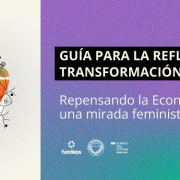Supreme Court must reject litigation against abortion law
Faced with the ruling of the Federal Court of Appeals of Salta that intends to validate that “every citizen” can request the suspension of the law of voluntary interruption of pregnancy, a group of civil society organizations filed an appeal before the Supreme Court of Justice of the Nation (CSJN).
“Below, we offer a google translate version of the original article in Spanish. This translation may not be accurate but serves as a general presentation of the article. For more accurate information, please switch to the Spanish version of the website. In addition, feel free to directly contact in English the person mentioned at the bottom of this article with regards to this topic”.
Amnesty International (AI), the Latin American Justice and Gender Team (ELA), the Women x Women Foundation (MxM), the Foundation for the Development of Sustainable Policies (Fundeps) and the Center for Legal and Social Studies (CELS) requested the highest court of Justice in the country to reject any attempt to restrict the rights of women, girls, adolescents and people with childbearing capacity.
Although the ruling of the Chamber of Salta does not affect the validity of Law 27,610, it is imperative that the CSJN accompany its own jurisprudence on the right to legally interrupt a pregnancy (FAL ruling) and the decisions that from the sanction of the law has issued the judiciary around the country, and rejects actions that seek to prevent women from exercising their right to a legal abortion.
The law of access to voluntary interruption of pregnancy meant a feminist conquest in line with international human rights law. It was approved by Congress after a broad and participatory debate.
Admitting that any citizen can act on behalf of the “unborn” against the rights of women and people with childbearing capacity is contrary to the National Constitution because it violates their right to make autonomous decisions within their private sphere and without interference by third parties, the principle of division of powers and self-restriction of the Judiciary, and the constitutional guarantee of due process.
On the facts
In December 2020, the former Salta senator María Cristina Fiore Viñuales filed a lawsuit against the Protocol for the Comprehensive Care of People with the Right to Legal Interruption of Pregnancy of 2019. She then expanded her petition requesting the unconstitutionality of Law 27.610 This action was considered inadmissible in the first instance. On August 27, the Federal Court of Appeals of Salta reversed that decision.
In addition to validating the collective representation of fetal life, the lawsuit sends out a worrying message because it reinstates a violent network against women who decide not to continue with a pregnancy. It not only calls for the suspension of the law, but also requests that measures be ordered that could involve violence against women.
Additional Information
The signatory organizations had already appeared in the cause in April of this year on behalf of the group of women and people with other gender identities with the capacity to gestate.








